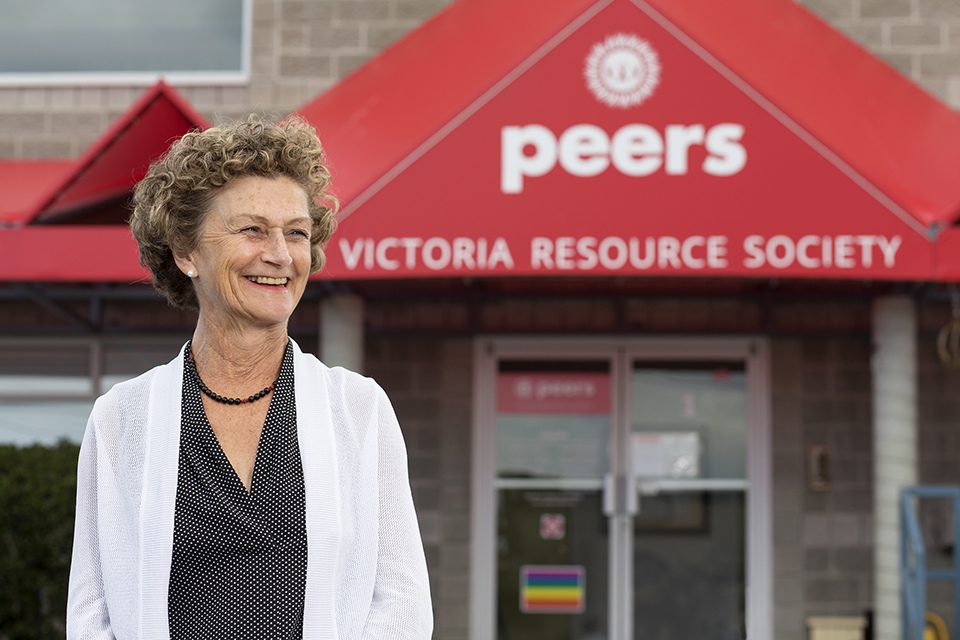Advocacy and research lead to sociologist's Killam Prize
- Anne MacLaurin

A nationally recognized scholar of Qalipu First Nation of Newfoundland heritage, UVic sociologist Cecilia Benoit has dedicated her career to the promotion of class, race and gender equality.
It’s this work that has earned Benoit, a scientist with the Canadian Institute for Substance Use Research and professor emerita with the Department of Sociology, the 2020 Killam Prize in Social Sciences from the Canada Council for the Arts.
As a Governor General Award recipient and a fellow with the Royal Society and the Pierre Elliot Trudeau Foundation, Benoit has had a significant impact on policy at the national, provincial and local levels. Her research has benefited the legalization of midwifery in Canada and called attention to the importance of Indigenous ways of knowing. Her findings supported interventions that led to the recognition of Indigenous midwives as legitimate care providers and the acceptance of their traditional knowledge within education curricula. Through her research and support of the innovative “Her Way Home” program in Victoria, pregnant and parenting women with a history of substance use have had continuing access to primary health care and social supports that are culturally appropriate and non-judgmental. Benoit also co-led a longitudinal study of street-involved youth in Victoria with the Victoria Youth Clinic (now known as Foundry Victoria). The recommendations of the young people interviewed for the study were given prominence when the clinic opened in 2018.
“Gender is a fundamental factor because it mediates access to key resources: knowledge, money, power, prestige and social connections,” says Benoit. “My research places gender on equal footing with other important factors determining health outcomes, including Indigeneity, race and socioeconomic status.
While her research program has spanned many different groups over her career, Benoit says much of her focus now is on sex workers. “My top priority is to reduce barriers to social inclusion of sex workers in Canadian society posed by stigma, discrimination and regressive social policies,” she says.
Her Understanding Sex Work projects involved interviews with 700 people working in or associated with the sex industry across Canada, including intimate partners of sex workers, clients, managers and sex workers themselves. She has looked at how recent changes to the Canadian Criminal Code impacted sex workers’ health and safety, and worked with community agencies to create a peer-to-peer health advocacy program for sex workers in Victoria that is being piloted in other national and international jurisdictions.
Benoit says that sex workers face social and economic injustices daily and their challenges are being compounded by the COVID-19 pandemic as they struggle with job loss due to the banning of in-person services and decreased access to community outreach.
“In light of their exclusion from Canada’s safety net of programs such as Employment Insurance, as well as CERB and our government’s other recent emergency financial responses, sex workers have mobilized in their own communities to create relief funds to help pay for basic necessities,” she says.
“Their fundraising efforts are helping but are inadequate and many needs are going unmet. Sex workers should be included in public responses to COVID-19 with the immediate establishment of a special government crisis fund to help keep them afloat during these difficult times. In the longer term, sex workers and other marginalized groups facing disproportionate collateral damage from the pandemic and ongoing social inequities need guaranteed access to a universal basic income.”
Benoit is the third Killam Prize winner to hail from UVic. Killam Prize winners receive a $100,000 prize.

